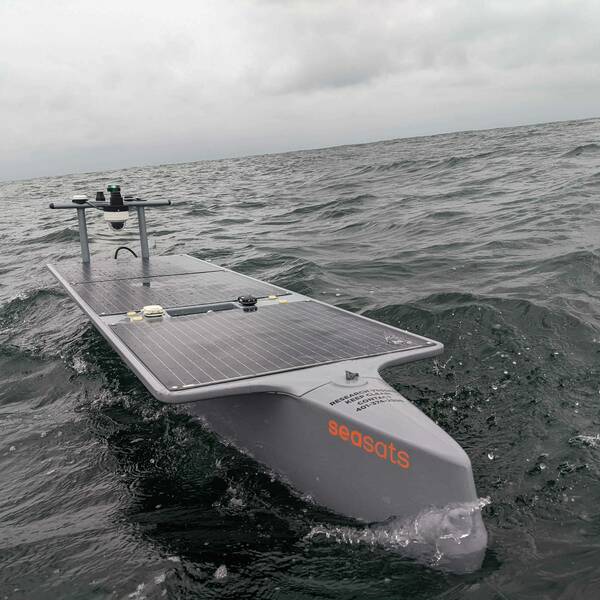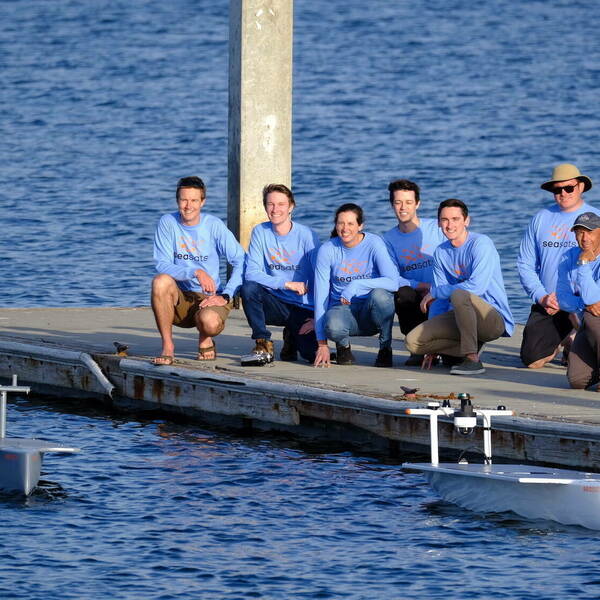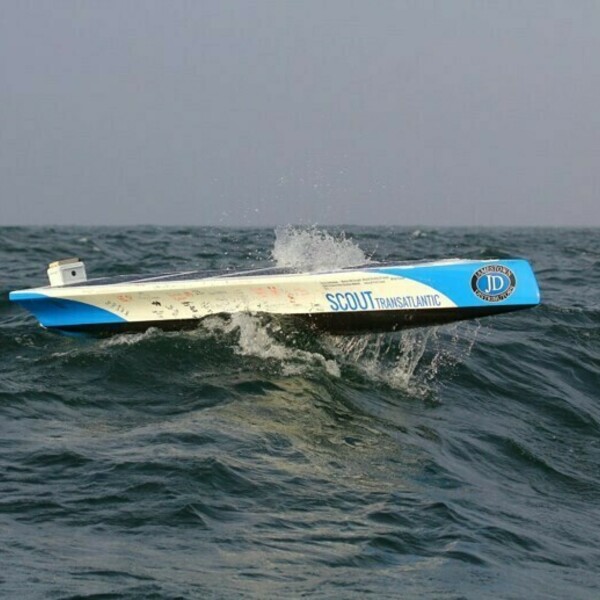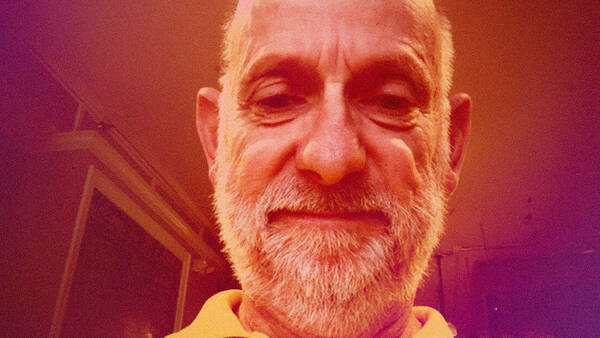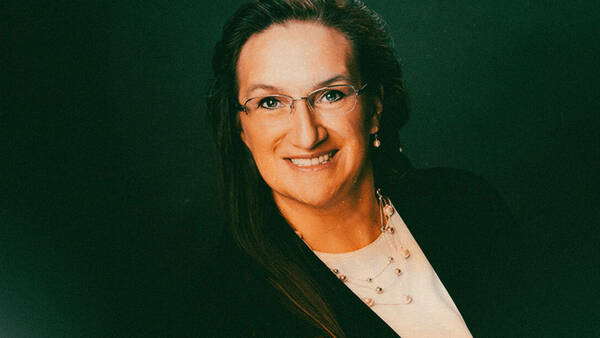Mike Flanigan ’15 is the CEO of SeaSats, a company that provides solar-powered autonomous ocean vehicles. SeaSats launched in October 2020, but the team of four co-founders has been making boats together since their days as kids growing up in coastal Tiverton, Rhode Island.
In the summer of 2011, they wanted to send a message in a bottle to a friend who was spending the summer in Spain — but with higher odds of actually making it there. So they set out to create an autonomous boat, with a GPS, running on solar power.
“The boat’s name was Scout, and we refer to it as the Scout Project,” Flanigan says. “We all grew up in this neighborhood around boats, and had done hands-on stuff in robotics and STEM. We thought it was going to take two months. Except the ocean is super hostile to electronics.”
The project ended up taking two-and-a-half years, with time spent on it during summers and school breaks. It was an exercise in patience, and trial and error. The boat sank when they first tested it in a lake near their hometown.
At the time, Flanigan says there weren’t many scientists or companies in the autonomous sea vessel space. The Scout Project started garnering media attention, and even has its own Wikipedia entry.
“It ended with the boat going 1,300 miles across the ocean and having a live tracking page with all these people checking in, a lot of news articles getting written about us, and people coming to interview the team,” Flanigan says. “It was this awesome story, and incredibly formative. It showed what you can do when you’ve got a dedicated team of people who are going after the same thing.”
But SeaSats was still a long way off: the Scout team went their separate ways, off to college degrees and engineering and business jobs where they’d gain the technical know-how and business chops to someday launch their own company. Their boat hadn’t made it all the way to Spain, but it laid the foundation for SeaSats.
Flanigan went back to his mechanical engineering classes at Notre Dame, where, he says, “I remember engineering classes were so much more meaningful. It was practical engineering, and how it can affect the real world.”
He later earned a Master of Science degree in computer science at the University of Colorado-Boulder, and worked engineering jobs in Boston and San Diego. The Scout team stayed connected and eventually, in October 2020, decided to go all-in on building solar-powered boats.
The co-founders are Flanigan, his brother, Dan Flanigan, and Dylan Rodriguez and Max Kramers, and the company is based in San Diego. The SeaSats boats are the size of a kayak, and are solar powered and autonomous, which means they drive themselves. The company’s customers use the boats to carry sensors out into the ocean to collect data.
In some cases, that means scientists and researchers collecting water samples. In others, it’s mapping areas of the ocean for recreational fishing companies. And the boats also can be used for defense surveillance and security. In any instance, it’s more efficient and cost-effective than sending out a larger boat manned by humans. And, the solar-powered boats are both environmentally friendly and simple to repair, Flanigan says.
“Typically, our customers would do their work on a giant ship, and many people would pull together their resources and go do it for very expensive cost per day. We provide the infrastructure for ocean sensing that is more cost-effective and easier logistically,” Flanigan says. “It’s this little motorboat with a propeller, and it’s low speed and lightweight. And it charges on solar; it’s got a battery. It’s very similar to how electric cars work these days, except instead of plugging it in to charge it, it is always charging a little bit off the solar panels.”
It has been nearly three years since SeaSats launched, and the team has doubled in size from 10 to 20 members. They also participated in Techstars, a prestigious startup accelerator, in the summer of 2021.
“I grew up as a younger brother, scrapping with a bigger older brother, so I love a good challenge,” says Flanigan, who also fought in the ring on campus as part of Bengal Bouts. “We’re this small, scrappy company up against these behemoth companies. When we are in the defense world, we’re up against Boeing or Booz Allen Hamilton. That kind of underdog challenge is really fun.”
Flanigan credits his mentors at Notre Dame, especially in the engineering department and on the Baja SAE® intercollegiate engineering design competition team. Not only did he learn practical engineering knowledge, but he says he saw firsthand how to be a collaborative leader. He valued his time learning from a group of three machinists at the Aero Optics lab who were willing to teach him skills not often taught in engineering courses. And, his peers at Notre Dame were a source of inspiration.
“People at Notre Dame have a purpose and are driving towards it. There’s so many examples of being surrounded by smart, hard-working people who are also really value-driven,” Flanigan says. “You are the sum of your peers and hugely motivated by who you are around, and that was super formative for me.”

